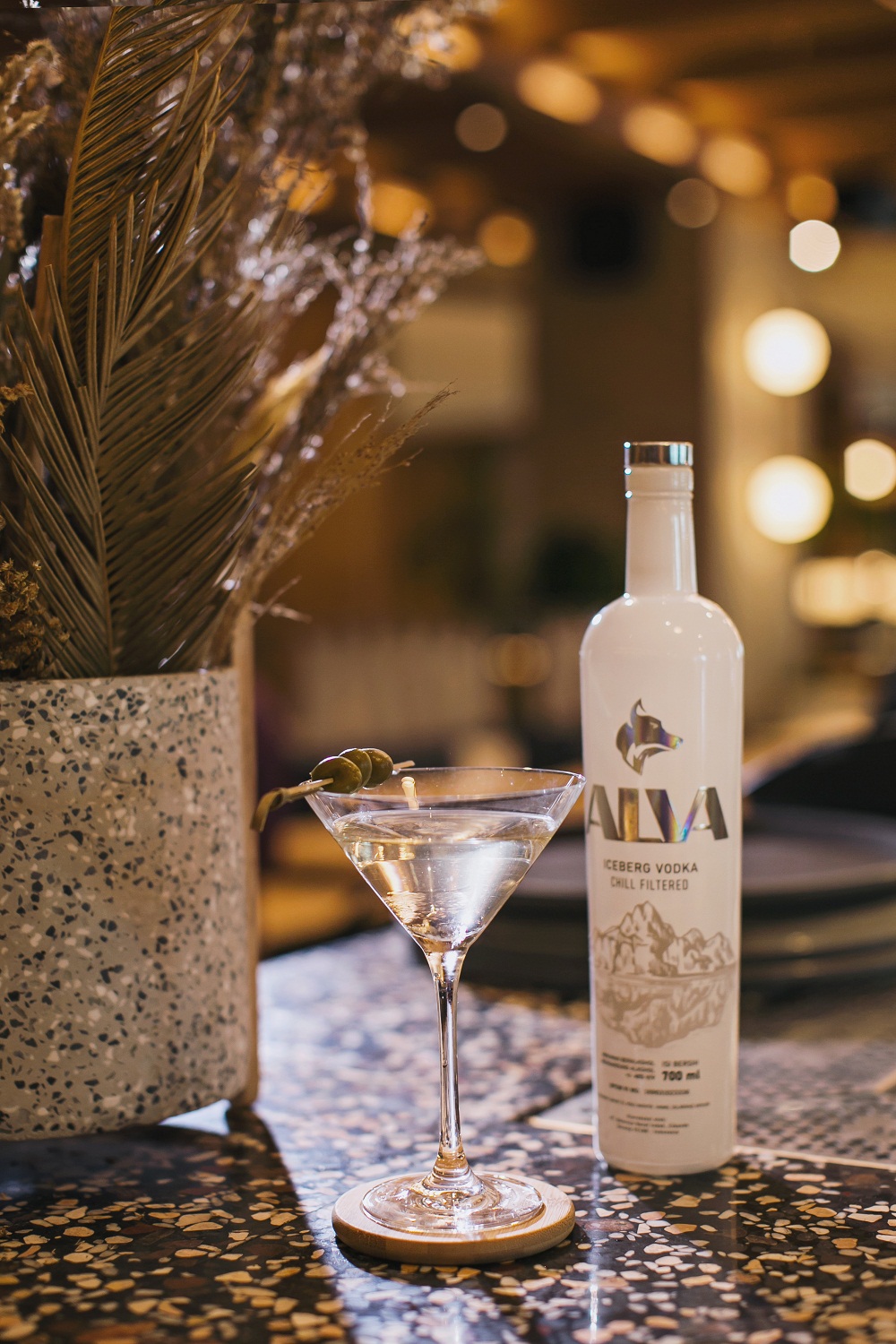Indonesia’s premium artisanal distilleries are positively flourishing. epicure investigates the growth and talks to the spirit-makers about their award-wining gin and grappa.
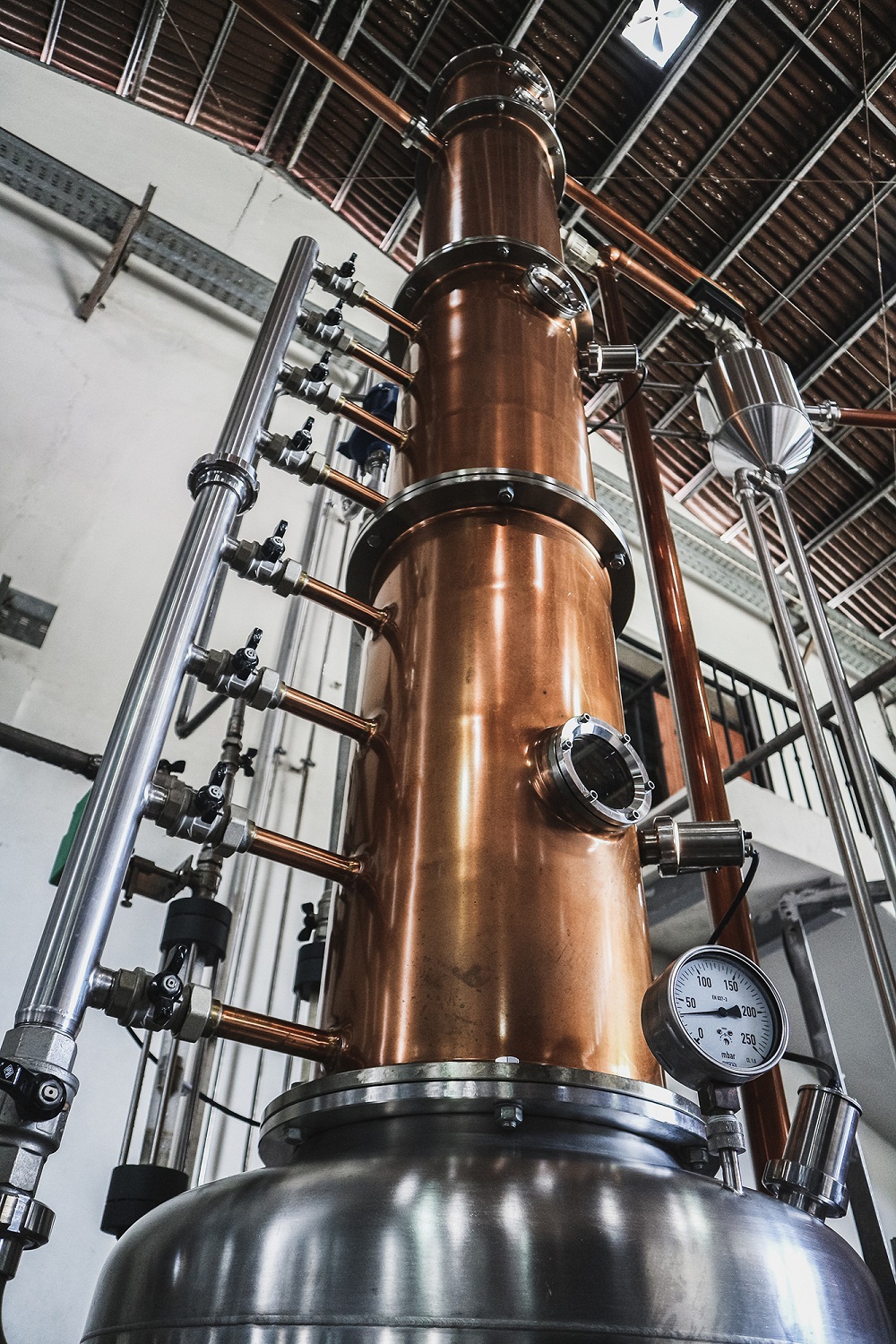
There is no doubt that the Southeast Asian bar scene is on top of its game. Craft bars and speakeasies are competing to showcase top alcohol brands and brazenly experiment with house-made everything. Behind the coppers, suave mixologists have never been more creative and innovative. They have powerful access to the best of juggernaut spirits and top tipples, luxury equipment and brazen investors. Unfortunately, that’s not always the case with Indonesia.
High import tariff on wine and spirits nearly doubled the price of alcoholic beverages. On top of that, a spat between the European Union over Indonesian palm oil in 2019 has escalated into a de facto ban over European spirits. Major Indonesian importers found their applications rejected and alcohol shipments have been stranded in containers and warehouses until today. As a result, Jakarta and Bali’s bottle shops are offering limited spirits options and just wines that mostly come from New World vineyards. To make it even worse, the pandemic happened.
But, it is not all doom and gloom. True to the old adage that opportunity often appears in the most challenging time, several entrepreneurs saw the opportunity, seized it and in the process, igniting the beginning of a new wave of premium spirits made in Indonesia. Forget cheap bootlegged booze that gives you a hard core hangover. Next time you find yourself in Jakarta, ask the mixologist for Indonesia’s own craft gin, served neat with hints of fresh citrus and warm coriander.
GOOD GRAPES
This particular endeavour started with a noble purpose: to improve the livelihood of Balinese local grape farmers. Situated on the bay of Saba, Gianyar, Bali, Sababay Winery started off producing wine in 2009.

The grapes are cultivated together with farmers in the northwestern coast of Bali where dry climate and rich-latera volcanic soil provides an ideal condition for grape growing. The vineyard has created an exclusive partnership system with more than 175 farmers in Gerogak, Seririt, Banjar, and Buleleng areas. The agreement stipulated that the vineyard guarantees to repay the high interest loans that the farmers have had through future grape harvests, provide technical assistance in farming, and most importantly, buy their grapes at a stable price.
“In 2018, we were entrusted to produce sacramental wine for the Catholic churches in Indonesia, a big step toward self-sufficiency. To ensure the quality and consistency of this fortified wine, we acquired a distillation machine which then paved the way for an expansion to crafted spirits. That’s how Sababay Distillery was founded in 2019,” explains CEO Evy Gozali. The state-ofart copper alembic distillery can be seen when one visits the two-hectare winery and distillery.

There are currently three Sababay Distillery spirits: SABA Grappa, SABA Vodka and SABA Vodka Infusion. “Using pomace from our Muscat Saint Vallier grapes, SABA Grappa is our first product, a fragrant and smooth Italian-style brandy. The positive feedbacks that we received motivated us to create two grape-based triple distilled vodkas,” says Gozali. An aromatic marriage between mace and cubeb peppers, SABA Vodka Infusion reveals spicy tones reminiscent of camphor, nutmeg and mint with a long finish and lingering hints of spices. SABA Grappa was recently awarded with Double Gold Medal while SABA Vodka Infusion won Bronze Medal at 2021 San Francisco World Spirits Competition.
Available in 28 cities in Indonesia through online market place and selected outlets, the awards are heartening for Gozali, especially considering that the products were just four months shy for being launched when it won. “We see a growing potential in alcohol beverage business. Indonesia’s affluent middle-class market is progressively increasing and so does their awareness to support local products,” says Gozali.
NORTH BALI’S PRIDE
Bona Budhisurya is a well-recognised figure in Indonesia’s F&B scene. The entrepreneur is also known as the co-founder of Stark Beer, Indonesia’s first craft beer brewery. Their brewery in the north of Bali has expanded, producing various craft beers from ale to pilsner.
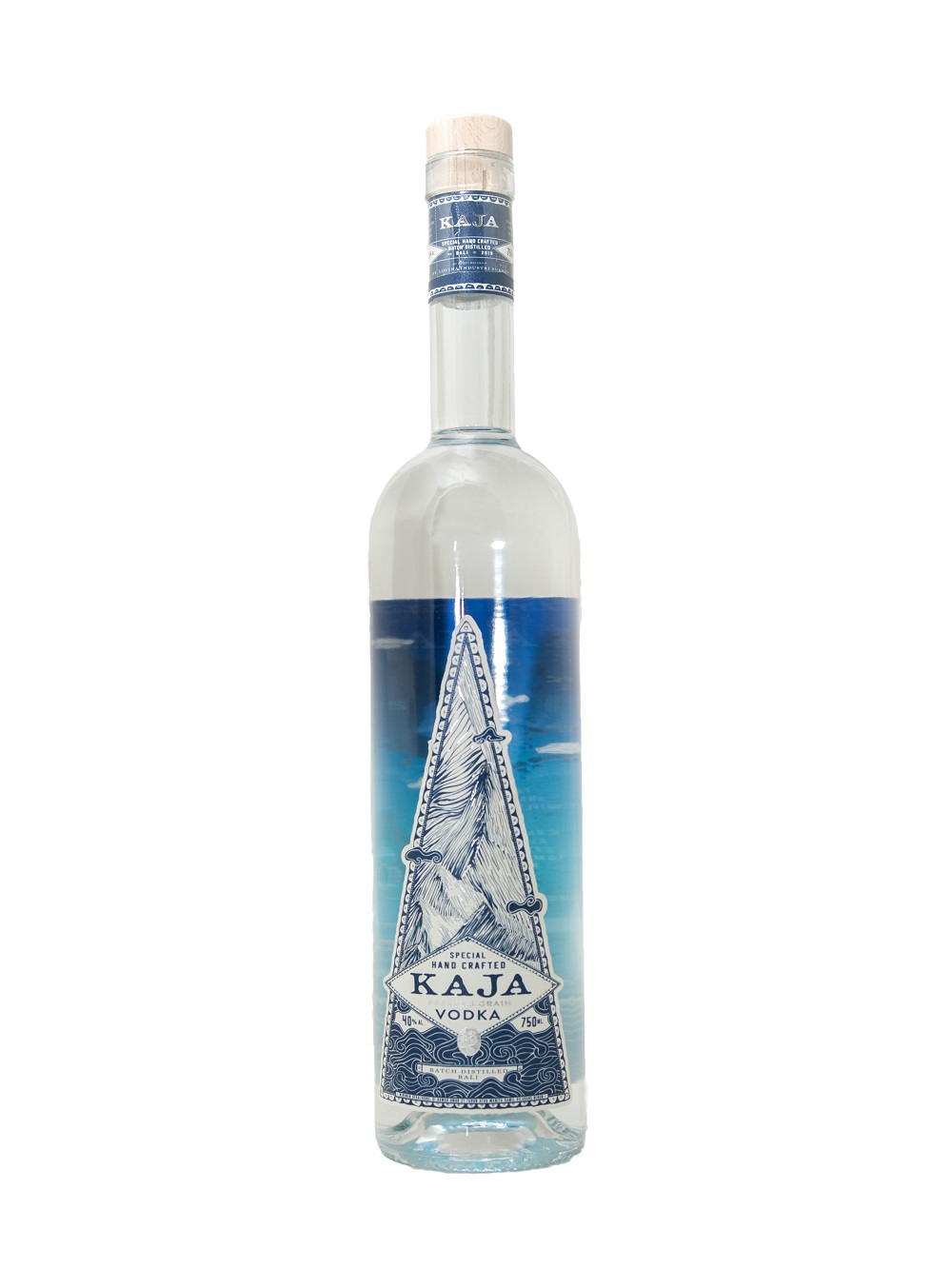
In 2018, they finally acquired the national license to produce and distribute B (5-20% ABV) and C (20-45% ABV) beverage products. They immediately started the development of premium grain-based gin and vodka. “Most local spirits that we have in the market is made from sugarcane-based alcohol and rely on essence for aroma. This resulted in low-quality spirits. We have the ingredients, the wheat distillery and the valuable license. There is no excuse not to make premium quality craft spirits,” says Budhisurya. KAJA Craft Spirit was born in 2019.
Using on-site natural spring water, imported malts and juniper berries as well as Indonesian botanicals such as coriander, liquorice, cinnamon, Angelica roots, cubeb berries, lemon peel, and cempedak (Artocarpus integer), KAJA Gin is a delight, best enjoyed neat or on the rocks. Its sister, KAJA Premium Grain Vodka is brewed and triple-distilled using 100 percent European wheat malt, resulting in a clean, peppery and perfumed palate with hints of star anise and rye.
At the moment, KAJA Gin and KAJA Premium Grain Vodka can be seen sitting on selected top bars in Bali and Jakarta. KAJA means north in Balinese language. Their eye-catching, elegant packaging enforces Budhisurya’s vision to make locally made craft spirits proudly served along with other prominent brands. His next move is to open 1945 Beer and Spirits retail shops in Bali, Jakarta, Balikpapan and Pekanbaru within this year. The shop will carry the complete range of his distillery’s products which also include hard seltzer, liquor, and soju.
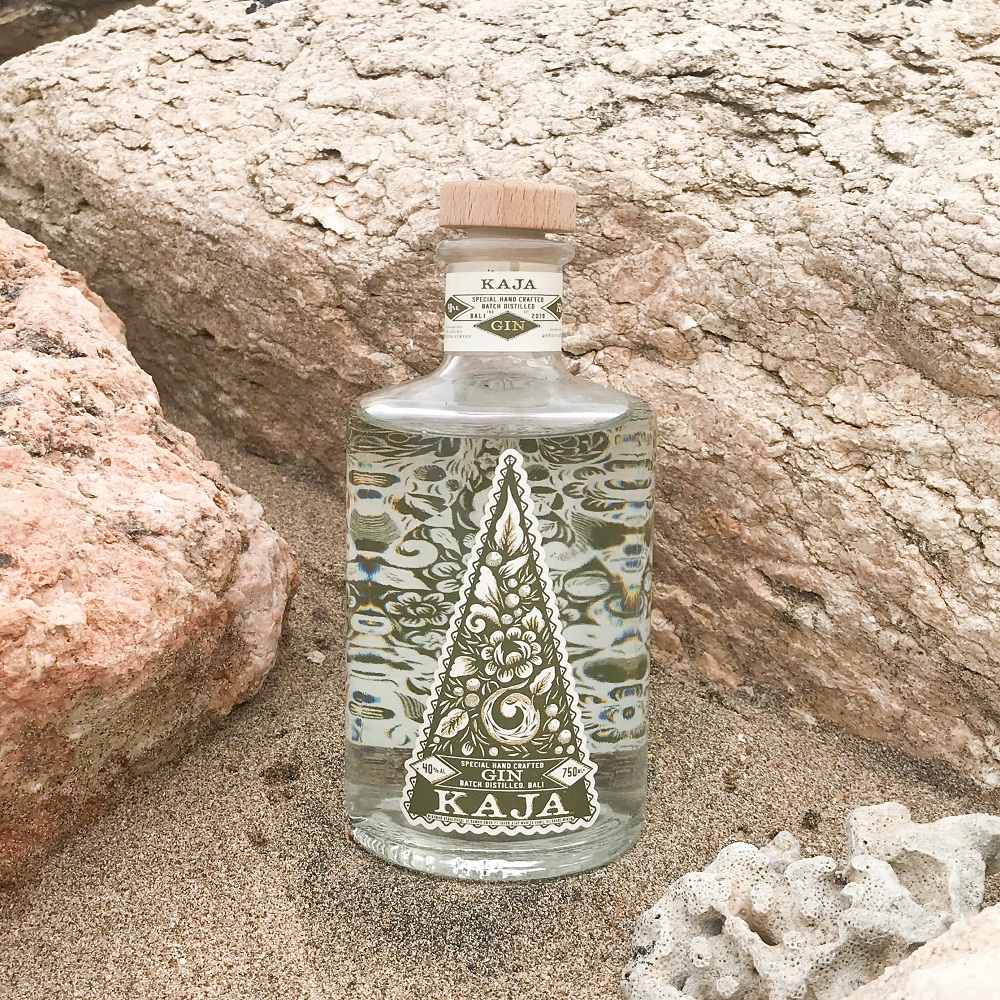
“We’re currently experimenting with our first batches of KAJA Single Malt Whisky and KAJA Brandy. Using barley, Scottish yeast and Bali’s own pristine spring water, the whisky is being aged in oak barrels. As for the Cognac-style brandy, we are using our local Singaraja grape, the Alphonse Lavallée. It is aged in Cognac oak barrel from France’s Limousin forest,” explains Budhisurya who gets very excited with the possibility of creating a wide range of premium spirits. “The future is exporting our products, not merely importing.”
THE SPICE ISLAND
Hopping on the global craft gin wagon trend, Voyage Island Gin is another newcomer in Indonesia’s artisanal spirits scene. From its distillery in Serang, Banten Province, 12,000 bottles have been successfully distributed nationwide since its launching in the end of last year. James Lam, the co-founder of Voyage Island Gin is thrilled to find that the gin has been receiving positive feedback through various bar collaborations with the country’s top mixologists such as Kiki Moka, Pius Ebang and Mega Amalia.
Entering the market during the most challenging time in the F&B industry, Voyage Island Gin has proven its worth by representing Indonesia in two of world’s prestigious competitions. It won the Silver Medal at London Spirits Competition 2020 and most recently has been awarded a Silver Medal at 2021 San Francisco World Spirits Competition. Lam’s previous background as a wine and spirit distributor contributed to his acumen on entering the market at the right time. “There is growing demand for craft gin in Indonesia. Together with my partner, we decided to create an artisanal gin that tells the story about our archipelagic nation and its fascinating spices. That’s why our gin is not a traditional London dry gin. It’s an island gin,” shares Lam.
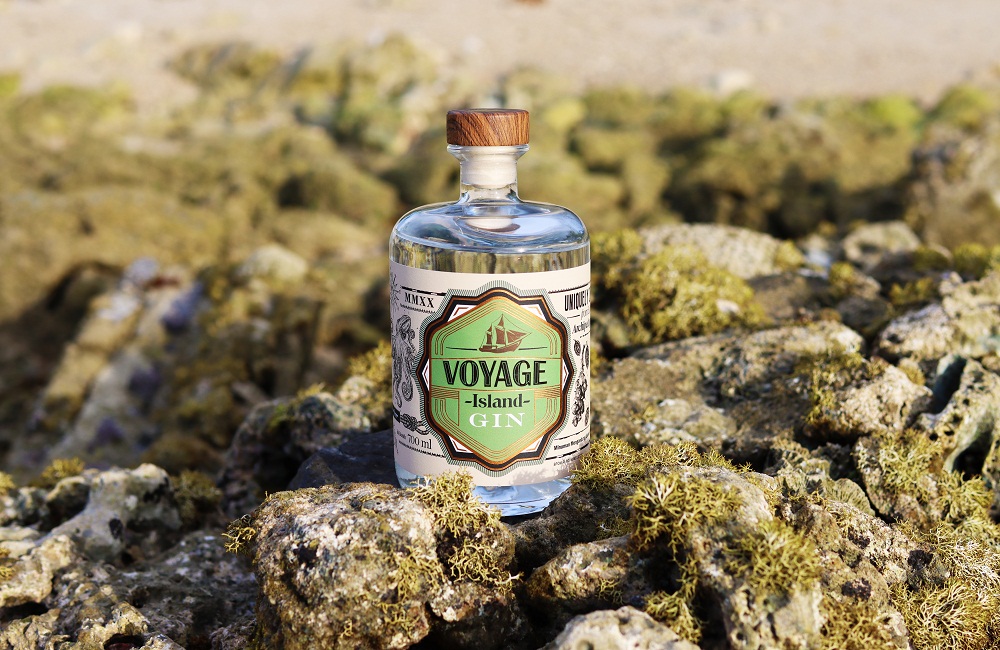
Proudly carrying a phinisi wooden boat on its label, Voyage Island Gin pays homage to Indonesia’s brave Buginese tradesmen and sailors. Apart from juniper berry, the rest of the botanicals are sourced locally. Coriander, black pepper, white pepper, orange peel, pomelo peel, cardamom, fennel seed, mint leaf and liquorice contribute to the gin’s rounded and spicy palate with lingering sweet and slightly bitter finish. Lam has also launched ALVA Vodka and is working on the preparation for introduce Walsh 50 bottled cocktails to the market.
True to the entrepreneurial spirits of old Indonesia’s explorers, Voyage Island Gin and the other distilleries managed to find solution and circumnavigated the challenging regulation of alcohol manufacturing in Indonesia. Despite being included in the negative investment list, there is a lot of positive in encouraging small-batch, premium artisanal distilleries businesses. Under the right regulation, Indonesia’s spirits can only soar.
